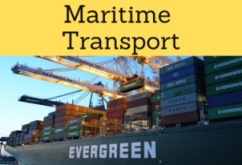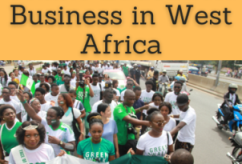Port of Dakar, Senegal. Access to Mali

Autonomous Port of Dakar, Senegal: oil, bulk, dry (Logistics)
- Autonomous Port of Dakar (Senegal)
- Main features of the Port of Dakar
- Areas of the Port of Dakar
- Access to the Malian Market
Port of Dakar (Senegal)



The Subject “Port of Dakar (Senegal)” belongs to the following Online Programs taught by EENI Global Business School:
Logistics Courses: Transport in Africa, Maritime Transport.

Masters: Transport in Africa, Business in Africa, International Business, Foreign Trade.

Doctorate in African Business, Global Logistics, World Trade.
Masters adapted to  Gambian Students.
Gambian Students.
Languages:  or
or  Port de Dakar. Summaries in
Port de Dakar. Summaries in  Porto de Dakar
Porto de Dakar  Puerto de Dakar.
Puerto de Dakar.

The Autonomous Port of Dakar (Senegal).
- Excellent location: six days to Europe/seven days to America
- The Port of Dakar is a Deepwater port (10-13 meters)
- Top exports of the Port of Dakar: petroleum, bulk, dry, and refrigerated containers
- Managed by the Dakar Port Authority
- Modernization of the Container Terminal: Dubai Port World
- Logistics Platform in the Port of Dakar
- Access to the Malian market (Senegalese Warehouses in Mali)
- Railway Dakar-Bamako (Rail Transport in Africa)

Southern Zone of the Port of Dakar:
- Three Piers
- General Cargo
- Container traffic
- Three Ro-Ro terminals
- 12 general terminals
Northern Zone of the Port of Dakar
- Four piers
- Solid and liquid bulk
- 20 berths
- Container Terminal
- Annual traffic: 300,000 TEU (twenty-foot equivalent unit)
- Fruit Terminal (project)
- “Port of the Future” Programme
Main cities near the Port of Dakar:
- Senegal: Dakar, Thiès, Kaolak, Ziguinchor, Kolda, Kédouogu, Tambacounda, Touba, Saint-Louis, and Ballou
- Mali: Kayes, Sandare, and Bamako
- Gambia: Banjul
- Guinea-Bissau: Bissau and Farin
- Mauritania: Nouakchott
Trans-African Roads (Transport corridors):
More information about Senegal (EENI African Business Portal).

(c) EENI Global Business School (1995-2024)
We do not use cookies
Top of this page


